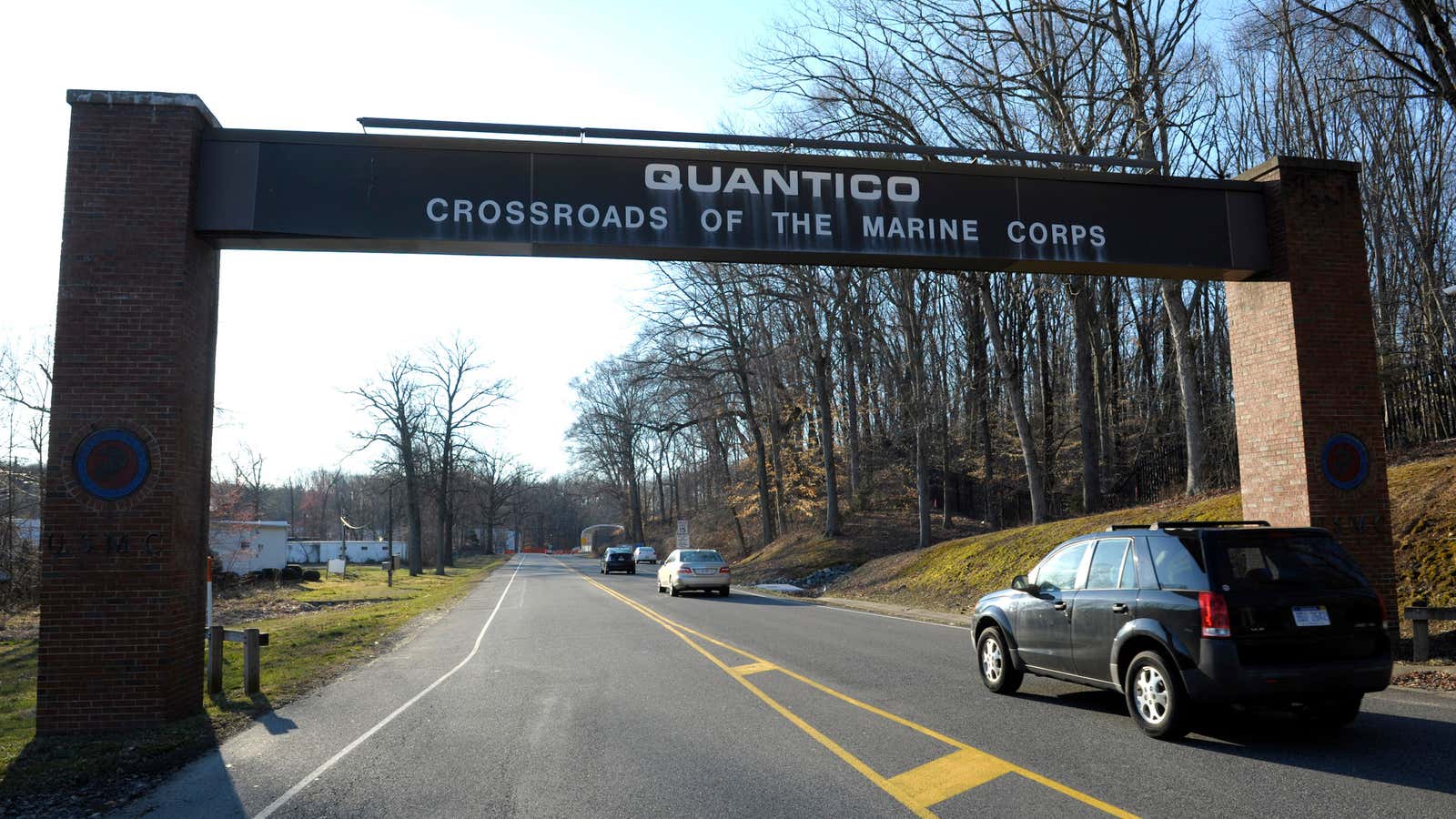US Marine officer candidates are doing worse and worse on an intelligence test that’s been around in some form since World War II, according to a new study of decades’ worth of scores.
After completing Officer Candidate School, Marines about to assume officer duties spend six months at The Basic School in Quantico, Virginia, before taking the General Classification test (GCT).
In a new NBER working paper, researchers at Tufts’ Fletcher School of Diplomacy found the GCT score that would have been the cutoff for the bottom third of new officers now covers the bottom two-thirds. A full 85% of people who took the test in 1980 got a score over 120, which was the cut-off for Marine officers in World War II. Just 59% beat that score in 2014.
Scores at the high end are down, too. In 1980, 4.9% scored over 150; only 0.7% did so in 2014.
And it’s not just the average that’s worse. The distribution of test scores is declining, as well.
In World War II, Marines either had to have a four year college degree (a tiny pool at the time) to be commissioned, or score above the cut-off on the GCT and go through Officer Candidate School.
The GCT has been around since World War II, and remains relatively unchanged. The Marine Corps is the last branch of the military to use it, and only officers take it. It’s not quite as important as it once was, but it’s highly correlated with success in training and throughout an officer’s career. The researchers obtained the data through a Freedom of Information Act request.
The biggest reason for the shift, by far, is the dramatic increase in the number of people completing a four-year degree, which is now required to enter officer training.
That means more people of relatively lower intelligence are going to school, and unless the military actively filters them out, they’ll tend to make their way into the officer corps.
Some have argued that the Marine corps’ active recruitment of African American and hispanic officers, as well as the inclusion of women, might be leading to a reduction in officer quality.
That’s not the case. Both African American and women officers tend to increase GCT scores, the research found. The increase in the number of hispanic officers has had no meaningful effect on scores over time.
“This study rebuts the often tacit assumption that minority officers are less qualified than their counterparts,” the authors write.
The authors didn’t explicitly identify what sort of impact this drop in test scores might be having. But it’s likely not positive.
“Answering this question is beyond the scope of this paper,” the authors wrote. “Given the myriad studies associating performance with intellect, however, it is hard to imagine anything other than a seriously deleterious impact on the quality of officers and, by extension, on the quality and efficacy of the military.”
